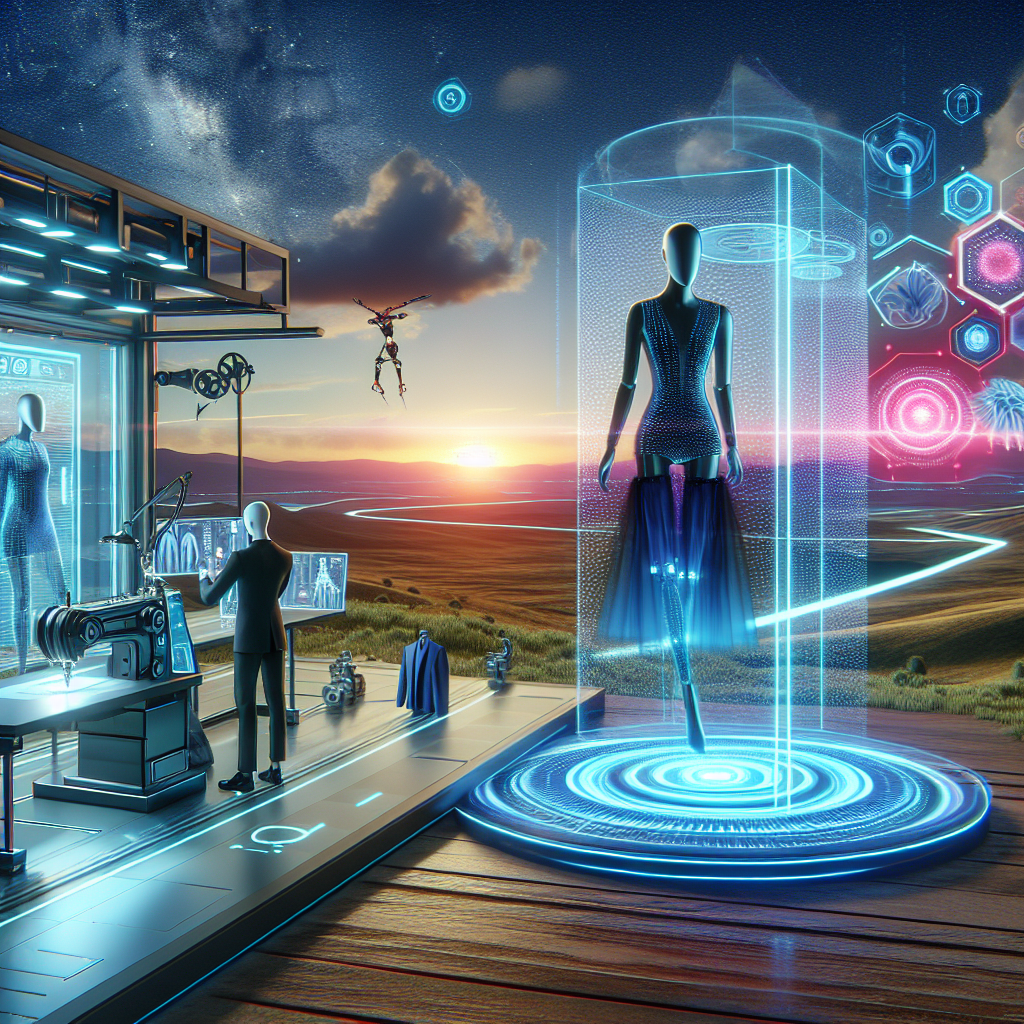The Future of AI in Fashion Technology: What’s on the Horizon
Artificial Intelligence (AI) has been making waves in the fashion industry in recent years, revolutionizing the way businesses operate and consumers shop. From virtual try-on tools to personalized recommendations, AI technology is reshaping the way we interact with fashion. As the capabilities of AI continue to expand, the future of AI in fashion technology looks brighter than ever. In this article, we will explore the latest advancements in AI technology and how they are shaping the future of the fashion industry.
Advancements in AI Technology in Fashion
AI technology has already made significant strides in the fashion industry, with many major brands and retailers incorporating AI into their operations. One of the most popular applications of AI in fashion is virtual try-on technology, which allows consumers to see how clothing will look on them before making a purchase. This technology uses AI algorithms to analyze a person’s body shape and size and then overlays virtual clothing onto their image. This not only helps consumers make more informed purchasing decisions but also reduces the number of returns, resulting in a more sustainable shopping experience.
Another area where AI is making a big impact in fashion is in personalized recommendations. AI algorithms can analyze a person’s browsing and purchasing history to recommend products that are tailored to their individual preferences. This not only helps consumers discover new styles and trends but also helps retailers increase sales by offering more relevant products to their customers.
AI technology is also being used to improve the sustainability of the fashion industry. By analyzing data on material usage and production processes, AI algorithms can help companies identify areas where they can reduce waste and improve efficiency. This not only helps reduce the environmental impact of the fashion industry but also helps companies save money in the long run.
The Future of AI in Fashion Technology
As AI technology continues to evolve, the future of AI in fashion technology looks promising. Here are some of the key trends and advancements that we can expect to see in the coming years:
1. Enhanced Personalization: AI algorithms will become even more sophisticated in their ability to analyze consumer data and provide personalized recommendations. This will help retailers create more targeted marketing campaigns and offer products that are tailored to each individual customer.
2. Virtual Stylists: AI-powered virtual stylists will become more common, allowing consumers to receive personalized style advice and outfit recommendations. These virtual stylists will be able to analyze a person’s body shape, style preferences, and budget to help them find the perfect outfit for any occasion.
3. Sustainable Fashion: AI technology will play a key role in helping the fashion industry become more sustainable. By analyzing data on material usage, production processes, and consumer behavior, AI algorithms can help companies reduce waste and improve the overall sustainability of their operations.
4. Augmented Reality (AR) Experiences: AI-powered AR experiences will become more prevalent, allowing consumers to virtually try on clothing and accessories in real-time. This will help consumers make more informed purchasing decisions and create a more immersive shopping experience.
5. Supply Chain Optimization: AI technology will be used to optimize the supply chain in the fashion industry, helping companies reduce costs and improve efficiency. By analyzing data on inventory levels, demand forecasting, and production processes, AI algorithms can help companies streamline their operations and reduce waste.
FAQs
Q: Will AI technology replace human designers in the fashion industry?
A: While AI technology is becoming more advanced, it is unlikely that it will completely replace human designers in the fashion industry. AI can help designers streamline their processes and create more efficient workflows, but human creativity and intuition are still essential in the design process.
Q: How can AI technology help small fashion businesses?
A: AI technology can help small fashion businesses by providing them with tools to analyze consumer data, optimize their supply chain, and create more personalized shopping experiences. By leveraging AI technology, small businesses can compete with larger retailers and reach a wider audience.
Q: Is AI technology safe and secure for use in the fashion industry?
A: Like any technology, AI technology comes with potential risks and challenges, including data privacy and security concerns. It is important for fashion companies to work with reputable AI providers and implement strict security measures to protect consumer data and ensure the safe use of AI technology.
In conclusion, the future of AI in fashion technology is bright, with advancements in virtual try-on tools, personalized recommendations, and sustainability initiatives reshaping the way we interact with fashion. As AI technology continues to evolve, we can expect to see even more innovative applications that will revolutionize the fashion industry and create a more personalized and sustainable shopping experience for consumers.

